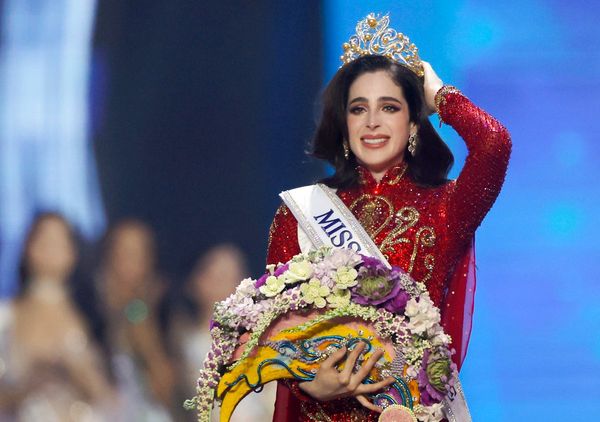
Russia’s supreme court has outlawed what it called an “international LGBT public movement” as extremist, in a landmark ruling that representatives of gay and transgender people warn will lead to arrests and prosecutions of the already repressed LGBTQ+ community.
The ruling in effect outlaws LGBTQ+ activism in a country growing increasingly conservative since the start of the war in Ukraine. The “extremist” label could mean that gay, lesbian, transgender or queer people living in Russia could receive lengthy prison sentences if deemed by the authorities to be part of the so called “international LGBT public movement”.
The justice ministry earlier this month filed a request that the “international LGBT movement” be labelled extremist, without clarifying what it meant under the term, which is not a registered entity in Russia but rather a broad definition used by the Russian authorities.
Human rights activists have said the vague wording of the ruling that targets the “international LGBT public movement” allows Russian authorities to persecute any individual or organisation it considers to be part of the “movement”.
“Even though there is no such thing as an international LGBT movement, it is clear that all legal activities of LGBT organisations will be impossible in Russia,” said Igor Kochetkov, the head of the rights group Russian LGBT Network.
Lucy Shtein, a Russian political activist and member of the Pussy Riot art collective said that “everyone who identifies themselves as part of the LGBTQ+ movement could now become a target”.
Thursday’s hearing took place behind closed doors and with no defendant.
The Kremlin has previously used the extremist label to prosecute human rights groups, independent media and political opposition, including allies of the Kremlin critic Alexei Navalny, some of whom have received lengthy sentences.
Since the start of the war in Ukraine, Vladimir Putin has launched a fresh effort to promote “traditional values”, with the Russian leader making anti-gay rhetoric one of the cornerstones of his political agenda. In previous speeches, Putin accused the west of “moving towards open satanism”, citing the promotion of gay and transgender rights in Europe as an example.
The Russian president repeated his disdain for the LGBTQ+ community during a speech this month referring to trans people as “transformers”. Some Kremlin critics have said the rhetoric is an attempt on the part of Moscow to create an internal enemy as Russia’s war in Ukraine dragged on with LGBTQ+ people being used as scapegoats by the authorities.
Kochetkov said the bill was part of Moscow’s effort to “create imaginary enemies within the framework of its ideology promoting ‘traditional values’”.
“This ideology is becoming totalitarian,” he said.
Friday’s lawsuit comes after several recent laws introduced to suppress LGBTQ+ people in Russia. This year Putin signed a law that banned “LGBT propaganda” among adults. The bill criminalised any act regarded as an attempt to promote what Russia calls “non-traditional sexual relations” – in film, online, in advertising or in public.
In the aftermath, Moscow’s Bolshoi theatre dropped a ballet about the Russian dancer Rudolf Nureyev from its repertoire, while bookstores and cinemas withdrew all content containing LGBTQ+ themes.
Some of the Kremlin’s efforts to stifle LGBTQ+ culture has been mocked by critics for the level of absurdity. Last week, a popular Russian television channel removed a rainbow featured in K-pop music, leading to a request by the Russian Duma to officially declare there was no link between rainbows and the LGBTQ+ community.
Over the summer, Russian lawmakers also banned medical intervention and administrative procedures that would allow people to change gender.







